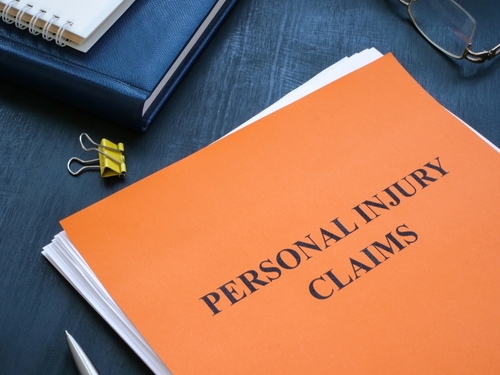Negligence is a legal concept that refers to a failure to exercise the level of care that a reasonably prudent person would under similar circumstances. In a personal injury claim, negligence occurs when an individual’s actions (or lack of actions) cause harm to another person. It is a fundamental principle in tort law that your personal injury lawyer will use to determine the liable party or parties in your case.
If you’ve been injured due to someone else’s negligence and are wondering about the value of your case, don’t hesitate to reach out. At Shapiro, Washburn & Sharp, we can help you assess your claim and guide you through the legal process to ensure you receive the compensation you deserve. Call us today at 833-997-1774 for a free consultation.
How Is Negligence Established?
To establish negligence in a personal injury claim, a personal injury lawyer must prove four key elements:
- Duty of care: The defendant (at-fault party) must have owed a duty of care to the plaintiff (victim). This means the defendant had a legal obligation to act a certain way towards the plaintiff to avoid causing harm. For example, drivers owe a duty of care to other road users to drive safely.
- Breach of duty: The plaintiff’s lawyer must show that the defendant breached this duty of care. This breach can occur through careless, reckless, or outright illegal actions. For example, a driver texting while driving may be considered to have breached their duty of care.
- Causation: The plaintiff must prove that the defendant’s breach of duty directly caused their injury. This element involves demonstrating that the harm would not have occurred “but for” the defendant’s negligent actions.
- Damages: The plaintiff must have suffered actual damages or losses as a result of the defendant’s actions. This can include medical expenses, loss of income, pain and suffering, and permanent disability.
What Are Some Examples of Negligence?
Negligence can manifest in various situations, including:
- Car accidents: A driver runs a red light, causing a collision with another vehicle. The driver’s failure to obey traffic signals constitutes negligence.
- Slip-and-fall cases: If a store owner fails to clean up a spilled liquid on the floor, a customer may slip and fall, and the owner may be held liable for negligence.
- Medical malpractice occurs when a doctor fails to diagnose a treatable condition due to a lack of proper care, resulting in harm to the patient. This failure to meet the standard of care can be deemed negligent.
- Defective products: A manufacturer produces a faulty product that injures a consumer. The company’s negligence in ensuring the product’s safety can lead to liability.
What Is Contributory Negligence?
Virginia and North Carolina both follow the contributory negligence doctrine in personal injury cases.
Contributory negligence occurs when a plaintiff is found to have contributed to their own injury through their negligent behavior. Under this doctrine, if a plaintiff (the accident victim) is determined to be even 1 percent at fault for the accident, they may be completely barred from recovering any damages from the defendant (the at-fault driver).
Due to the complexities and potential harsh outcomes of contributory negligence, injured parties in jurisdictions that apply this doctrine should seek legal advice from an experienced attorney specializing in personal injury cases. They can help navigate the legal landscape and assess the likelihood of success in pursuing a claim.
Can Negligence Be Both Intentional and Unintentional?
Negligence is typically classified as unintentional, meaning it arises from carelessness rather than deliberate actions. However, some actions can be both intentional and negligent. For instance, if someone intentionally engages in reckless behavior, leading to someone else’s injury, they may face both intentional tort claims and negligence claims.
What Should I Do If I Think I Have a Personal Injury Case?
If you believe you have a personal injury claim due to negligence, it is essential to seek medical attention for any injuries you may have. You should also document all details related to the incident, including dates, times, and witnesses.
The next step is to call 833-997-1774 to schedule a free consultation with one of our dedicated personal injury lawyers. At Shapiro, Washburn & Sharp, we have obtained more than $100 million in settlements and awards for our clients and will work diligently to get you the financial compensation you deserve.
